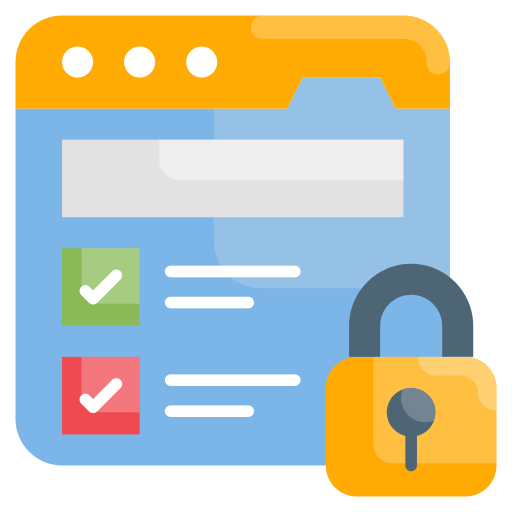Globalization, technology breakthroughs, and changing regulatory landscapes have all had a major impact on the Dutch M&A market in recent years. In this whole situation, the value of secure file sharing is greatly enhanced. As the market demands a secure and fast method of sharing sensitive information, the option of using virtual data room services is becoming more and more common. Let’s take a closer look at the role of VDR in the current Netherlands M&A business landscape.
The Integral Role of VDRs in Dutch M&A Transactions
VDRs play a crucial role in M&A as they provide a secure and confidential platform for the exchange of data between parties. Additional features such as watermarking, audit trails, and secure viewing make the process more controllable and prevent information leakage. Ongoing progress of data rooms also covers the imperfections of virtualized storage using ISO 27001.
“We only realize how important the VDR’s role is when it is missing in the processes we participate in.”
— Katarzyna Buda, over a dozen years of experience in finance and accounting.
VDR Essentials for Secure M&A Transactions in Dutch Businesses

When Dutch businesses engage in Mergers & Acquisitions, they’re confronted with the task of secure file sharing—a critical aspect that can determine the success or failure of the transaction. Virtual Data Rooms have become the cornerstone for facilitating these high-stakes deals. A VDR’s robust features enable secure document exchange, ensuring confidentiality and integrity. Among the top VDR features essential for M&A activities, advanced encryption methods stand out. They ensure that sensitive data, proprietary information, and strategic documents are only accessible to authorized parties.
Moreover, the features of a VDR go beyond mere encryption; access control mechanisms allow administrators to define user permissions strictly. These features are significant for Dutch firms, which operate in a landscape known for stringent privacy regulations. Through enablement of detailed audit trails, a VDR records each user’s interactions with the documents, providing clear evidence of data diligence and compliance with relevant laws.
Additional VDR features that address the complexities of M&A include secure viewing of files such as confidential presentations or financial statements without allowing the documents to be downloaded or copied. The features of VDRs also extend to intuitive user interfaces and seamless document management systems, which expedite due diligence processes. These features are invaluable when teams must analyze volumes of information under tight timelines. To accommodate the diverse needs and sectors within the Dutch market, VDRs offer customizable features that tailor the platform to specific transaction requirements. Whether a business operates in tech, manufacturing, or services, the VDR’s features can be adjusted to fit the unique aspects of their deal structure. Virtual data room features designed for security, control, and efficiency are not just beneficial but essential for Dutch businesses aiming to execute M&A transactions smoothly and securely.
Keeping Safe Merger and Acquisition Documents or Boosting M&A Due Diligence with Advanced VDR Security Features

In the context of mergers and acquisitions within Dutch businesses, the role of a Virtual Data Room (VDR) is pivotal. As these transactions involve the exchange of confidential data, the security features of a VDR cannot be overstated. Contemporary VDRs come equipped with a focus on both robust functionality and user-friendliness. This ensures that this platform isn’t just a repository for sensitive files but is also an active participant in streamlining the M&A process. Advanced VDR features, such as two-factor authentication, encryption at rest and in transit, and detailed user access controls, are no longer optional but foundational elements. They provide a blanket of security over every interaction with the data.
Furthermore, Dutch businesses are recognizing the importance of features like time-stamped audit trails, which offer detailed reports on who accessed what information and when. This level of scrutiny provided by VDR features is crucial in maintaining a high degree of transparency and accountability throughout the due diligence process. Another significant VDR feature is the ability to set granular permissions. By doing so, stakeholders can tailor the access of individuals accordingly, mitigating the risk of data breaches. Meanwhile, document viewing restrictions ensure that sensitive information isn’t compromised, and dynamic watermarking adds an extra layer of security to documents viewed within the VDR.
The security of your documents during the Merger and Acquisition process is primarily your concern since VDR is not a magic wand for all problems. Virtual data rooms are a tool that will only be useful if you use it correctly. Here are the best practices for secure document sharing and collaboration:
- Enforce strong passwords. Each corporate VDR account must have a complex password, and must change it regularly to prevent the account from falling into the wrong hands.
- User training. Employee training is also an important part of digital security since every employee should be aware of how not to fall into the hands of fraudsters and protect themselves from hacking.
- Stay updated. Make sure that all your company’s software is updated to the latest version, especially virtual data rooms, as differences in version with your partners may cause delays.
VDR will help you with the security of your documents and effective collaboration using their internal tools. Data encryption methods will help you secure your data by hiding it from unauthorized persons. Access control will allow you to control access to various documents. You can choose the level of file access for individual people, and you can also block the ability to share files to prevent data leakage. Multi-factor authentication is also an important element of VDR. It will complicate the process of hacking a corporate account since when entering the service, user will enter a code from external resources like SMS or email.
As you might understand, It’s important to give security and user training serious thought when choosing a secure file-sharing platform. Here are some crucial insights to help you decide:
- Search for platforms that are certified. Approved security certifications such as ISO 27001, SOC 2, or other compliance certifications that are relevant to your requirements should be given priority over other platforms.
- Move beyond certifications. For more insights, look into security audits and independent penetration testing reports from reliable companies.
- Evaluate the platform’s training resources. Check the accessibility and comprehensiveness of the webinars, user manuals, and support options.
Make sure that the platform uses robust encryption algorithms like AES-256 and gives you the opportunity to add your own encryption if necessary.
Enhancing Collaboration and Efficiency in M&A Due Diligence
M&A due diligence is a process that requires constant and rapid interaction between two companies and their data. In such a situation, VDRs allow the two parties to communicate effectively through many useful features.
Real-time notifications will keep all users informed of the process and quickly respond to problems that arise. Mobile device compatibility will allow employees to track progress and stay in touch even if they are not at their workplace. Integration with other tools will allow you not to waste time and get started right away, even if companies use different software.
VDR Q&A modules streamline communication with central organization, topic threads, and asynchronous interaction. They boost due diligence with document-linked questions, tracked revisions, controlled access, and insightful reports. This fosters a secure, efficient space for informed choices.
Navigating Challenges and Solutions in Dutch M&A
Navigating Dutch M&A market trends requires secure file sharing that bridges the gap between stringent regulations like GDPR and emerging trends like digital health. The key lies in selecting VDRs offering EU-based data centers, robust encryption, granular access controls, and potentially industry-specific certifications like HIPAA. This ensures compliance while adapting to the evolving market landscape.
In Dutch M&A transactions, successful, secure file-sharing practices often involve utilizing encrypted platforms like Firmex, which employs AES-256 encryption for data protection. Multi-factor authentication adds an extra layer of security, ensuring only authorized individuals access sensitive documents. Customizable permissions enable precise control over file access, limiting it to relevant parties. Watermarking files acts as a deterrent against unauthorized distribution. Regular audits and activity tracking provide visibility into file interactions, ensuring regulatory compliance.
Summary
The array of features in a VDR must be intuitive, allowing parties involved to avail functionalities without steep learning curves. The benefit of features like drag-and-drop uploading and full-text search capability can vastly improve the efficiency of data management. As Dutch businesses navigate the intricate landscape of M&A, it’s essential they leverage VDRs endowed with comprehensive security features that protect critical data and facilitate a seamless due diligence process.
The conclusion is that VDR in Dutch M&A transactions is a necessity. Only the right virtual data room service can fulfill all the security requirements and increase the efficiency of collaboration between companies. Since such large and complex processes require constant regulation and control on both sides. The main thing is to be responsible for choosing a VDR provider and ensure that all the functions necessary for your company are available.
